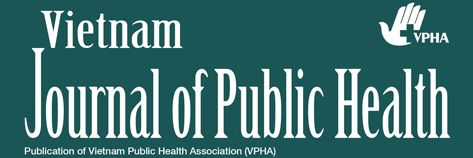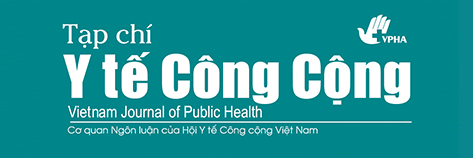Những nhân tố ảnh hưởng đến nuôi con bằng sữa mẹ ở huyện Quỳnh Lưu, tỉnh Nghệ An (Factors affecting breastfeeding practice in Quynh Luu district, Nghe An province
Tóm tắt
Nuôi con bằng sữa mẹ không những giúp cho trẻ phát triển cả về chiều cao và cân nặng trong 6 tháng tuổi đầu tiên nhanh hơn mà còn tạo quyền năng cho phụ nữ, góp phần vào thực hiện bình đẳng nam nữ. Các tác giả đã kết hợp phỏng vấn bảng hỏi 400 phụ nữ ở lứa tuổi sinh đẻ với phương pháp quan sát và viết nhật ký. Những cản trở cho các bà mẹ nuôi con hoàn toàn bằng sữa mẹ trong bốn đến sáu tháng đầu là phụ nữ phải gánh vác cả công việc sản xuất trong nông nghiệp và công việc hàng ngày trong gia đình. Các bà mẹ có khả năng kinh tế khá hơn lại thích mua sữa ngoài cho con ăn bổ sung. Mong muốn có bốn con, hai trai và hai gái vẫn còn và phổ biến trong nhiều gia đình. Các tác giả đề nghị kết hợp các chương trình nâng cao nhận thức về giới và nuôi dưỡng trẻ nhỏ với chương trình khuyến khích nuối con bằng sữa mẹ hoàn toàn trong 4 đến 6 tháng đầu tiên.
English abstract
Breastfeeding not only creates favorable conditions for the physical development of infants during their first 6 months of age but also empowers women and contributes to the gender equality. The authors combined structured questionnaire for 400 child-bearing age women with in-depth interviews, group discussions, home observation and keeping diary. The main barrier for exclusive breastfeeding
during the first four to six months after birth is that women are overloaded with both agricultural production and daily housework. Well-to-do women prefer buying processed milk for supplementary feeding. It is still a desire and even a common desire for many families to have two sons and two daughters. A recommendation made by the authors is to combine various programs such as a program for raising the awareness on gender equity and bringing up children with a program for promoting the exclusive breastfeeding for all infants from 4 to 6 months after birth.
Từ khóa
Toàn văn:
PDF (English)##submission.citations##
WABA (World Alliance for Breastfeeding Action). Breastfeeding: Healthy mothers and healthy babies. 2002.
Hop LT, Gross R, Giay T, Sastroaqmibjojos, Schultink W, Lang NT. Premature complementary feeding in association with power growth of Vietnamese children, J Nutr. 2000; 130(11): 2683-90.
WABA & ARUGAAN. Breastfeeding, Women and Work: Human rights and creative solutions. Report of the WABA International Workshop; 1-5 June 1998; Quezon City, Philippines.
Bộ Y tế (MOH). Báo cáo tại hội nghị quốc tế về nuôi dưỡng trẻ nhỏ; 11/2002; Hà Nội, Việt Nam.
Ibid.
Vietnam Inter-censual Demographic Survey 1994, Infant Feeding Practices in Vietnam. Statistical Publishing House; Hanoi. May 1996.
Vietnam Demographic and Health Survey, 2002. Infant feeding, National Committee for Population, Family and Children, Population and Family Health Project. Hanoi, September 2003.
Yimyam S & Morrow M. Breastfeeding Practices among employed Thai women in Chiang Mai. J Hum Lact. 1999 Sep; 15(3); 225-32
Saitha Chanthalangsay et al. Psychosocial Factors Related to Practicing Exclusive Breastfeeding among Mothers of Infants 4-12 months old in Huamuang district, Houaphanh province, Laos. Journal of Public Health and Development 2003; 1 (2), 31-39.
Pinka Chatterji & Kevin Frick, Does Returning to Work after Childbirth affect breastfeeding practices. 2003 URL: http://ideas.repec.org/cgi-bin/htsearch.
Truong SA et al. Infant Feeding Practices in Vietnam. Asia Pac Popul J. 1995 Dec; 10(4): 3-22.
National Committee for the Advancement of Women in Vietnam. Statistics on women and men in Vietnam 2002.
Le Thi Nham Tuyet, et al. Images of the Vietnamese woman in the new millennium. The Gioi publisher, Hanoi 2002.
Jayne Werner and Daniele and Beslanger. Gender, Household, State: Doi moi in Vietnam. Cornell University. 2002.
Kirk A.Dearden, Le Nga Quan. Work outside the home is the primary barrier to exclusive breastfeeding in rural Vietnam: Insights from mothers who exclusively breastfed and worked. Báo cáo tại hội nghị quốc tế về nuôi dưỡng trẻ nhỏ; 11/2002; Hà Nội, Việt Nam.
Hanne O. Mogensen, Tine Gammeltoft, Nguyễn Mỹ Hương, Hoàng Kim Dung. Nhập đề về Nhân học xã hội trong bối cảnh Việt Nam: Nghiên cứu về giới và sức khỏe sinh sản ở khu vực ven biển miền Bắc Trung Bộ. Ủy ban Dân số, Gia đình và Trẻ em Việt Nam- Đại học Copenhagen, Đan Mạch. 2004.
Tuttle CR and Dewey KG. Determinants of infant feeding choices among Southeast Asian immigrants in northern California. J Am Diet Assoc. 94(3): 282-6.
UNICEF Vietnam. Vietnam Children and Women: A
situation Analysis. 2000.



